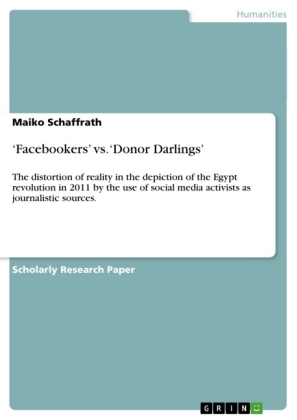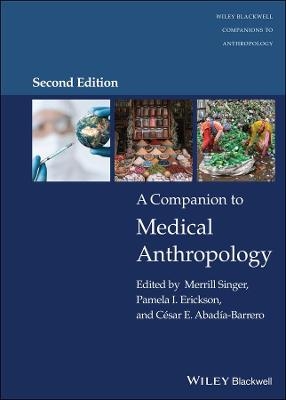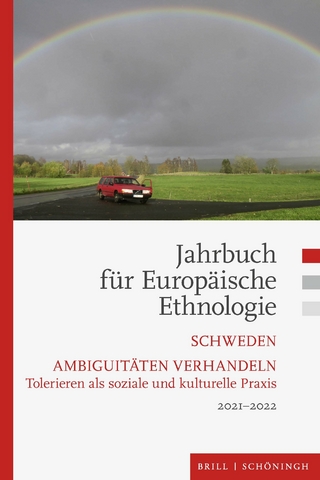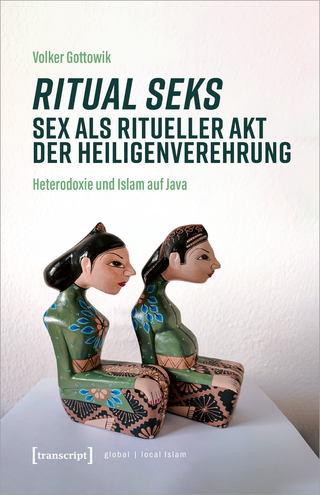
¿Facebookers¿ vs. ¿Donor Darlings¿
The distortion of reality in the depiction of the Egypt revolution in 2011 by the use of social media activists as journalistic sources
Seiten
2011
|
11003 A. 3. Auflage
GRIN Verlag
978-3-656-05420-7 (ISBN)
GRIN Verlag
978-3-656-05420-7 (ISBN)
- Titel nicht im Sortiment
- Artikel merken
Research Paper (undergraduate) from the year 2011 in the subject Cultural Studies - European Studies, Maastricht University, language: English, abstract: When the Dutch journalist Joris Luyendijk first published his book Hello Everybody in 2006 , Facebook was only at the beginning of its rise to the mass-medium that it is today. The same applies for Twitter. It was only at its starting point; with its launch in July 2006 (Crunchbase, 2011) it had significantly less than 12,000 users in November 2006. Consequently, journalists adapted the methodology of their work to these new forms of social (mass) communication. A study by the George Washington University (USA) in cooperation with the public relations company Cision confirms this assumption. Sixty-five percent of all journalists examined said that they used Social networks as sources for their daily work (Bates & Sullivan, 2010). This indicates that also the way of reporting about the Middle East might have changed; that correspondents adapted to the new tools which they got and use them actively for their reporting. One of the most prominent journalistic pieces on the revolution in Egypt which used sources from the social media landscape in order to reconstruct the course of the Egyptian revolution is the BBC documentary "How Facebook Changed the World" (Husain, 2011), first broadcasted on 5 September 2011 on BBC 2 (BBC, 2011).This paper examines, firstly, the problems a researcher is confronted with writing about journalist's source mix in order to explain the paper's specific approach to the topic. Secondly, the paper investigates the role of social media in journalism, how the use of social media as a source is legitimized and how much credibility is given to social media as sources by journalists. Thirdly, the use of social media as sources is considered, using the example of the BBC documentary in order to lastly analyse the advantages and disadvantages of social media in journalist's source mix. For this purpose the analysis of Luyendijk is taken as a basis. This paper only focuses on the part about the Egyptian revolution in the documentary; all other parts are not subjects of the analysis.
| Erscheint lt. Verlag | 15.11.2011 |
|---|---|
| Sprache | englisch |
| Maße | 148 x 210 mm |
| Gewicht | 44 g |
| Themenwelt | Sozialwissenschaften ► Ethnologie ► Völkerkunde (Naturvölker) |
| Schlagworte | Arab • East • Egypt • Facebook • joris • Journalism • luyendijk • media • Middle • Misrepresentation • Revolution • Social • Sources • Spring • Twitter |
| ISBN-10 | 3-656-05420-7 / 3656054207 |
| ISBN-13 | 978-3-656-05420-7 / 9783656054207 |
| Zustand | Neuware |
| Haben Sie eine Frage zum Produkt? |
Mehr entdecken
aus dem Bereich
aus dem Bereich
Schweden : Ambiguitäten verhandeln - Tolerieren als soziale und …
Buch | Softcover (2023)
Brill Schöningh (Verlag)
49,90 €
Buch | Softcover (2023)
transcript (Verlag)
54,00 €


